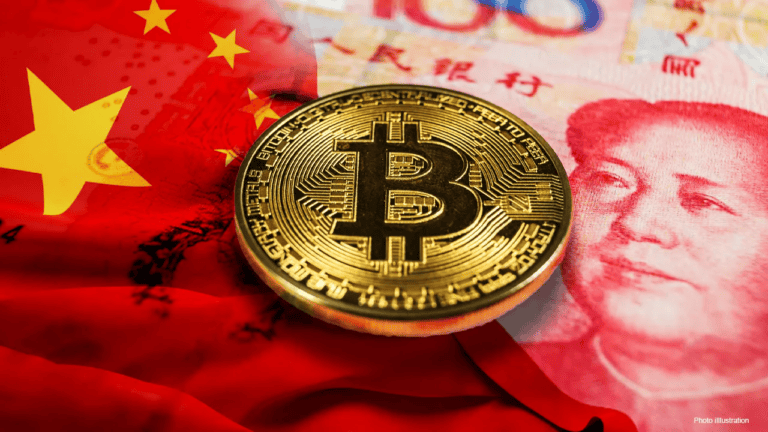Will China Unban Bitcoin? Regulation, Innovation, and Future Implications

China has long played a pivotal role in the cryptocurrency market, both as an innovator and as a regulatory force. From being home to the largest Bitcoin mining operations in the world to instituting some of the harshest crackdowns on digital assets, China’s relationship with crypto is complex. This article will provide a deep technical and geopolitical evaluation of China’s crypto policies, its impact on the global market, and what the future might hold.
1. The Rise and Fall of Bitcoin Mining in China
For years, China dominated global Bitcoin mining, controlling over 65% of the Bitcoin hash rate at its peak. The primary reasons for this dominance were:
- Cheap electricity: China’s vast hydroelectric power resources made mining highly cost-effective.
- Access to hardware: The world’s largest ASIC manufacturers, including Bitmain, are based in China.
- Skilled workforce: China’s technical expertise allowed rapid scaling of mining operations.
However, in May 2021, the Chinese government implemented a nationwide ban on Bitcoin mining, citing concerns over energy consumption and financial stability. This ban led to a historic drop in Bitcoin’s hash rate, as miners were forced to relocate to more crypto-friendly jurisdictions such as the United States, Kazakhstan, and Canada.
Despite this, underground mining operations persist, leveraging off-grid hydroelectric power and proxy networks to evade government detection. The lesson here is clear: even in the face of regulatory crackdowns, the economic incentives of mining remain strong.
2. China’s Crypto Ban: What Does It Actually Mean?
China has taken a strict stance on cryptocurrency transactions, but what exactly is banned? Let’s break it down: ✅ Prohibited
- Cryptocurrency exchanges cannot operate in China.
- Financial institutions are barred from offering crypto-related services.
- ICOs (Initial Coin Offerings) are banned.
- Crypto mining (at industrial scale) is illegal.
❌ Still Allowed (or not effectively enforceable)
- Individuals can own and hold cryptocurrencies.
- NFTs and blockchain applications are actively developed in China.
- Crypto-related discussions and research continue in academic institutions.
China’s ban is not a full-fledged prohibition on digital assets, but rather a restriction on their circulation within the regulated financial system. This means that while retail investors cannot trade Bitcoin through Chinese banks, they can still access offshore exchanges using VPNs.
3. China’s Blockchain Development: Embracing the Tech, Banning the Coins
Although China has cracked down on cryptocurrencies, it remains a leader in blockchain innovation. The government has invested billions into blockchain development, primarily through the Blockchain Service Network (BSN), which aims to:
- Create a government-approved blockchain ecosystem.
- Enable enterprise and government applications for supply chain management, finance, and identity verification.
- Develop a centralized framework that integrates with China’s existing regulations.
The key distinction here is that China supports blockchain technology but not decentralized cryptocurrencies. This aligns with its broader economic strategy of maintaining control over financial systems while leveraging cutting-edge technology.
4. The Digital Yuan (CBDC): China’s Answer to Crypto
China was one of the first major economies to launch a Central Bank Digital Currency (CBDC), known as the Digital Yuan (e-CNY). Unlike Bitcoin, the Digital Yuan is fully controlled by the People’s Bank of China (PBOC) and is designed to:
- Replace cash transactions with a digital alternative.
- Increase government oversight on financial transactions.
- Reduce dependence on third-party payment platforms like Alipay and WeChat Pay.
The Digital Yuan has already been piloted in over 23 cities, with billions of dollars in transactions processed. While it offers faster and more efficient transactions, critics argue that it significantly reduces financial privacy, as all transactions can be tracked by the government.
The rollout of the Digital Yuan has two major implications:
- It positions China as a leader in digital currency innovation.
- It reinforces China’s anti-crypto stance by providing a state-backed alternative to Bitcoin and stablecoins.
5. Global Impact: How China’s Policies Shape the Crypto Market
China’s crypto policies have ripple effects across global markets. Here are some of the biggest impacts:
a) Crypto Market Volatility
Every time China announces new restrictions, the global crypto market experiences major price swings. For example:
- 2017: China banned ICOs → Bitcoin dropped 40%.
- 2021: China banned mining → Bitcoin lost over 50% of its value in months.
This highlights how dependent crypto sentiment is on regulatory news from China.
b) The Shift of Crypto Mining Power
The mining ban forced miners to relocate, leading to:
- A decentralization of Bitcoin mining, reducing China’s influence on the network.
- A rise in mining activity in the U.S., making the U.S. the new mining leader.
c) The Battle Between Decentralized Finance (DeFi) and State-Controlled Finance
China’s financial system has historically been highly centralized. The rise of DeFi challenges this model, which is why China views decentralized finance as a threat to its economic stability.
6. The Future of Crypto in China: What to Expect
Despite China’s strict regulations, the crypto industry is evolving in ways that even Beijing might struggle to control. Here are three possible scenarios:
Scenario 1: China Reverses Its Crypto Ban (Low Probability)
While unlikely, some experts believe that if global adoption of crypto reaches a point where banning it is unsustainable, China might soften its stance.
Scenario 2: China Doubles Down on Regulation (Most Likely)
The most probable outcome is that China continues its strict crypto policies while promoting state-controlled blockchain initiatives. This includes:
- Further restrictions on unauthorized blockchain projects.
- Greater adoption of the Digital Yuan.
- Potential use of AI-driven surveillance to track crypto transactions.
We’ve covered some projects that could benefit from the actual China Crypto Policies, you can see this post here.
Scenario 3: China’s Ban Fails to Stop Underground Crypto Activity
Despite bans, crypto usage in China continues. Many traders are still active on offshore platforms, and DeFi applications are difficult to regulate. This suggests that full crypto prohibition is practically impossible.
Cryptocurrency Projects That Could Benefit from China’s Policies
China’s stance on cryptocurrency has been a mixture of strict regulations and technological innovation. While the government has banned Bitcoin mining and crypto exchanges, it has also heavily invested in blockchain technology and the Digital Yuan. This creates a unique landscape where certain crypto projects may thrive under China’s approach. In this article, we will explore which cryptocurrencies and blockchain projects could benefit from China’s policies and why.

Conclusion: China’s Influence on the Future of Crypto
China remains one of the most powerful forces in the global crypto market, even with its restrictive policies. While it has banned trading and mining, it is simultaneously developing blockchain applications and the Digital Yuan.
The future of crypto in China will be shaped by a battle between decentralization and state control. Investors and developers must closely monitor China’s regulatory moves, as they will continue to influence market sentiment and global adoption.
🚀 What’s your take? Will China’s regulations stifle crypto, or will innovation find a way to thrive? Let’s discuss!




